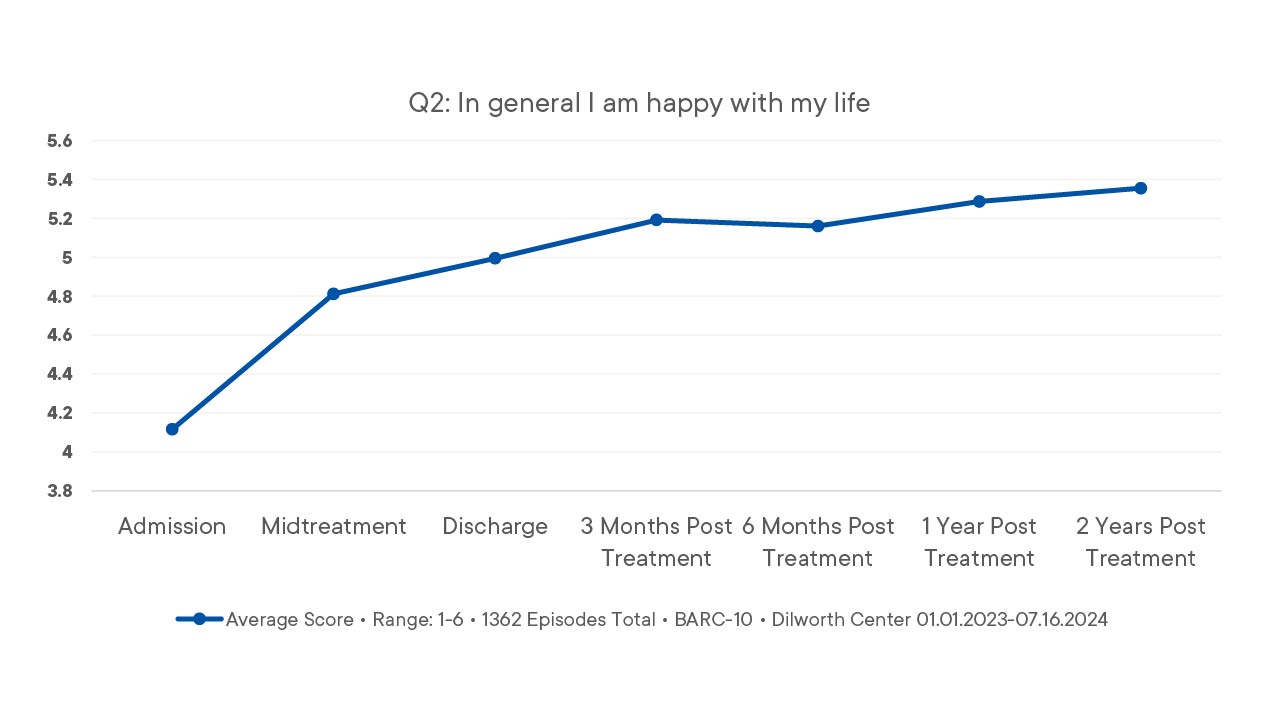Relapse Prevention
Our Relapse Prevention Program is specifically designed to help anyone who needs to strengthen their recovery and prevent relapse.
Relapse is a common challenge in the journey to recovery
from substance use disorders
Want Long-Term, Robust Sobriety?
At Dilworth Center, our Relapse Prevention Program is specifically designed to help individuals strengthen their recovery and maintain long-term sobriety. As a leading Charlotte treatment center, we are committed to providing comprehensive addiction treatment that includes robust strategies for preventing relapse.
Our program focuses on equipping newly recovering individuals with the skills and tools they need to navigate social, medical, and everyday situations where they might encounter triggers. Our relapse prevention strategies are tailored to meet the specific needs of patients who have completed the Dilworth Center Intensive Outpatient Program (IOP).


What to Expect from Relapse Prevention
The program consists of a combination of individual and group therapy sessions. Patients are required to continue participating in Alcoholics Anonymous or Narcotics Anonymous, stay connected to their sponsors, and continue attending home group meetings. Urine drug screens are incorporated into the program to provide patient accountability.
Dilworth Center’s Relapse Prevention Program utilizes Terence Gorski’s Relapse Prevention Therapy Workbook ™ to help identify triggers, high-risk situations, and other issues that can disrupt recovery.




Relapse Prevention helps patients with the following issues:
- Identifying potential relapse triggers.
- Identifying and learning how to avoid high-risk situations.
- Reintegrating back into the community where drugs and alcohol were once a major component of their daily functioning.
- Building awareness of internal drives, fears, blind spots, and obstacles to success through interaction with group members who are facing similar challenges.
- Developing a personalized relapse prevention plan that offers practical tools to build a better foundation for on-going recovery.
*Patients must have completed Dilworth Center’s intensive outpatient program to be eligible for relapse prevention.
Treatment Modalities
We approach mental health and addiction on parallel paths, with attention to each person’s unique journey.
Trauma Trained
(CCTP)
Dilworth Center’s counselors are trauma-trained professionals who approach care with a deep understanding of how past experiences impact recovery.
Group Therapy
By fostering a community for patients to bond with peers facing similar struggles, they can express their feelings and learn from multiple perspectives outside their own experiences.
Individual Therapy
Our patients can set up individual therapy sessions to develop treatment goals and to focus on their unique challenges.
Cognitive Behavioral Therapy
A psychotherapeutic technique designed to help patients identify and challenge negative thought patterns contributing to their addiction, allowing them to develop healthier coping mechanisms for long-term sobriety.
Yoga and Mindfulness
Yoga and mindfulness therapy helps patients focus on the present moment, reduce stress, and support long-term recovery and sobriety through techniques like breathing exercises, meditation, and physical postures.
12-Step Facilitation
12-Step Facilitation Therapy offers a structured approach to addiction recovery by encouraging individuals to engage with a supportive community and develop healthy coping strategies.








